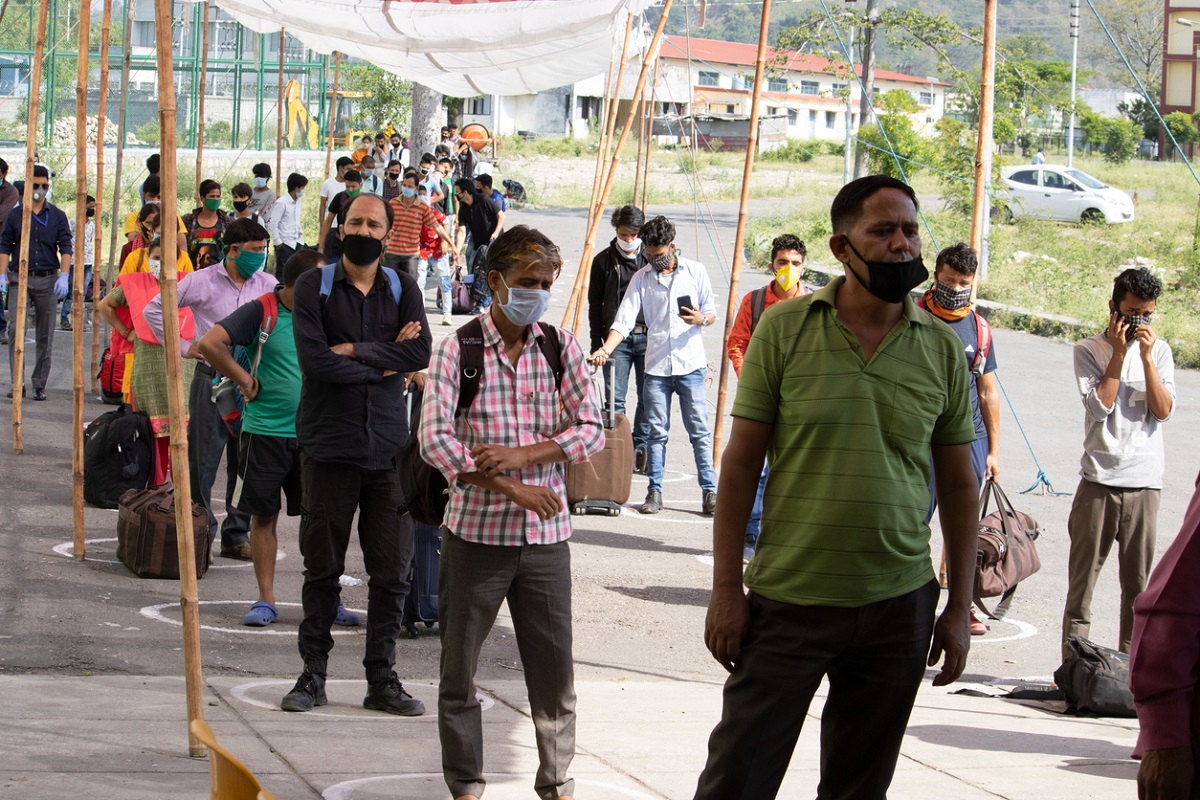Trump announces US withdrawal from World Health Organisation
Trump has long been critical of the WHO, and his administration formally withdrew from the organisation in July 2020 as the Covid-19 pandemic continued to spread.
The medical community believes that akin to the flu viruses, humidity may have an impact on the increased transmission of Covid-19.

(Representational Image: iStock)
While the outburst of Covid-19 cases has largely been associated with the complacency and increased transmissibility of the emerging Variants Of Concern, the role of hot, humid weather aiding the transmission has still not ruled out.
The medical community believes that akin to the flu viruses, humidity may have an impact on the increased transmission of Covid-19.
Advertisement
While speaking to The Statesman Moolchand Hospital, New Delhi indicated that relative humidity may have a role in increased transmission of SARS-CoV-2 since the lower relative humidity in contrast to the temperature has been predicted to increase the risk of infection.
Advertisement
“When we cough, sneeze, talk or sing, water droplets and smaller water particles (aerosols) containing living virus disperse into the air. Droplets and aerosols tend to stay afloat longer and travel farther in the air with lower relative humidity. Virus-containing aerosols, in particular, can penetrate more deeply into the lungs to increase the possibility of transmission,” said Dr Bhagwan Mantri, consultant, pulmonology at the hospital.
Explaining how low relative humidity aids in further viral transmission, Dr Mantri said: “When moisture levels are insufficient, viral particles have a greater “docking” potential at airway receptor sites, which can lead to an increased risk of infection.
”Low relative humidity has a drying effect on the cells and mucous linings of our airways. These cells act as a defence against viral particles and other invading foreign substances. Drying out airway linings impairs their ability to function properly,” he added to his explanation.
Corroborating with Mantri, Dr Monalisa Sahu, Consultant Infectious Diseases, Yashoda Hospitals, Hyderabad said that majority of studies have shown that temperature has some impact on the transmission of the Covid-19 virus.
Dr Sahu said that the disease spread by the predecessor of the SARS family of viruses shown to suffer the impact of climatic conditions in the medical literature.
“The spread of the diseases caused by the members of the coronavirus family, such as SARS-CoV-1 and MERS-CoV, has already been shown to suffer the impact of climatic conditions. In both these coronaviruses, hot and humid climates demonstrated the ability to decrease the viability of these viruses, while in places with low temperature and humidity there was greater viral stability. The favourable cold and dry weather conditions facilitate the spread of the coronaviruses and seem to be the same for SARS-CoV-2 virus,” she observed.
However, Dr Sahu also pointed that although temperature and humidity influence the SARS CoV-2 transmission, public policy and individual behaviour are the most relevant factors influencing the outcome.
“Since there has not been much evidence on how the virus and its variants behave in different climatic conditions and since it is very unpredictable, it is best to practice Covid appropriate behaviour to protect yourself throughout the year,” she suggested.
Dr Madhu Handa, medical director, Moolchand Hospital also said that adherence to Covid appropriate behaviour is the only way to reduce the transmission risk in any atmospheric condition.
“Vaccination, use of mask, hand-hygiene and social distancing remain the continue to remain the guards against SARS-CoV-2 in any weather or a season. One should follow Covid-19 appropriate steps to protect yourself and those around you throughout the year,” she added.
Advertisement